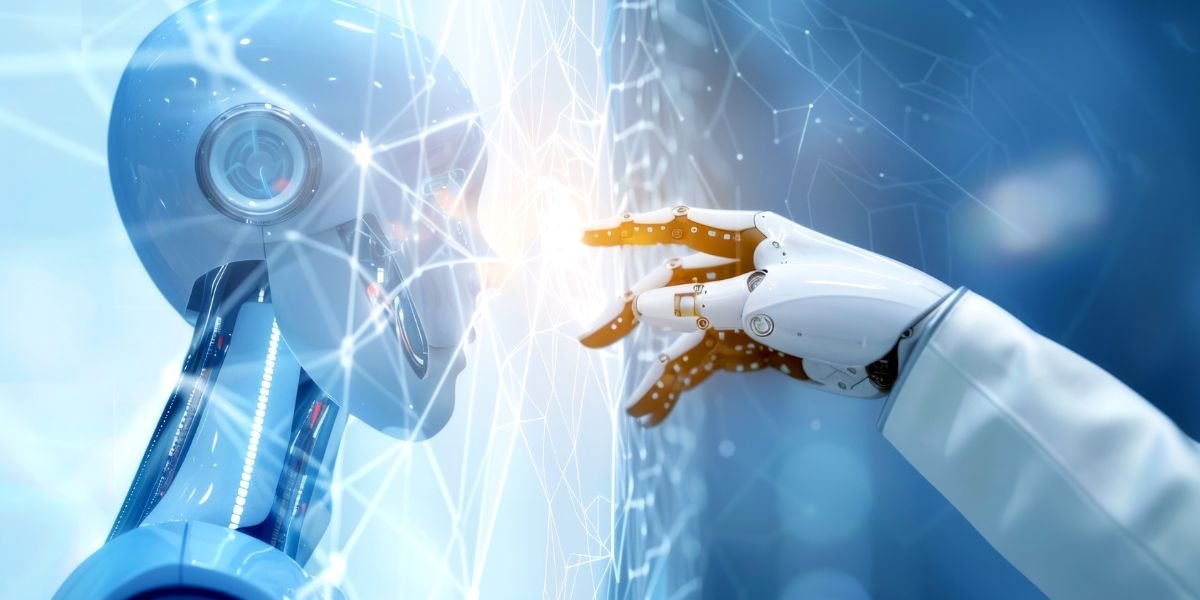General
How AI Is Transforming Business Decision-Making

No longer a future idea, artificial intelligence is already changing businesses’ operations, planning, and growth. By 2025, artificial intelligence will be everywhere—from customer service to supply management. But one field especially affected by it is decision-making. Not business leaders, but faster, smarter, and more precise are made by artificial intelligence. Artificial intelligence is changing corporate decision-making in every sector like this.
1. Big data-driven decisions
Though businesses today produce vast quantities of data, converting it into practical ideas used to be a sluggish manual process. The game is changed by AI’s real-time analysis of huge sets of information. From sales trends to consumer behavior, artificial intelligence notes trends and deviations that people may not catch.
By using tools like machine learning models and predictive analytics, firms can forecast results, spot risks in the early stages, and take proactive measures. Whether it&’s marketing spend optimization or product demand forecasting, artificial intelligence allows for more intelligent, data-driven decisions.
2. More intelligent, quicker strategic planning.
Often reactive and grounded on past performance, traditional strategic planning is. Artificial intelligence technologies provide sights for the future. They model possible disturbances, simulate market conditions, and provide probabilistic predictions from current trends.
For executives and entrepreneurs, this means better long-term preparation. Artificial intelligence allows identification of when it is time to pivot, more efficient resource distribution, and prioritizing of growth possibilities. Leaders now have artificial intelligence-driven forethought driving their decisions rather than depending exclusively on gut feeling.
3. Real-time operational decisions. For these purposes, use.
AI assists with daily choices as well as overall strategy. AI in logistics can dynamically perfect delivery routes. E-commerce changes pricing according to competitor action and customer demand. Customer service AI chatbots help to classify inquiries and send them to the appropriate department.
Small but regular enhancements increase customer satisfaction, cut expenses, and raise performance. Companies using artificial intelligence in their operational procedures remain nimble and competitive.
4. Personalisation and Knowledge of Customers
Artificial intelligence is particularly good at knowing particular consumer behavior. Artificial intelligence solutions can suggest items, customize advertising campaigns, and even forecast when a customer might churn by examining transactions, website visits, and interactions data.
This degree of customization results in higher conversion and more involvement. AI insights enable sales and marketing officials to run campaigns that connect and produce actual ROI.
5. Risk management as well as fraud identification
Early risk findings depend in large part on artificial intelligence. AI can highlight in finance odd transactions that could point to fraud. Cybersecurity can find menaces before they arise. AI in HR could spot indicators of employee disengagement or future concerns about compliance issues.
Artificial intelligence allows managers to act before issues get out of hand by rapidly bringing these ideas to light. This proactive risk management is a significant change from the reactive models of the past.
6. Improved Human-AI Cooperation
One misunderstanding is that artificial intelligence takes over human decision-makers. The best results occur from working together with people and artificial intelligence. AI offers suggestions and deals with data-intensive tasks; people apply ethics, context, and knowledge.
AI could, for instance, help a marketer choose which message corresponds with brand values while also suggesting which ad campaign has the greatest probability of success. Together, these contribute to quicker, more precise judgments free of the loss of the human element.
7. Democratic sharing of ideas
AI software is more readily available. You no longer have to have a data science team to profit from machine learning. Small businesses can run forecasts, create insights, and use AI dashboards without writing a single line of code thanks to no-code and low-code AI platforms.
This democratization implies that superior decision-making is not limited to corporate behemoths only. Insight rather than scale now lets startups and small groups vie.
In summary
Rather than an add-on, artificial intelligence is starting to define smart business decisions. From daily activities to strategy, it offers leaders timely, precise, and practical ideas.
The businesses that succeed post-2025 will be those that include artificial intelligence in their decision-making processes while still keeping the human element. It’s not man against. Machine — it’s about a man working together with a machine to make faster, more rational decisions.
-

 Entertainment8 months ago
Entertainment8 months agoJanet Jackson Super Bowl ‘Nipplegate’ With Justin Timberlake: 21 Years Later, Fans Still Want Justice
-

 Entertainment7 months ago
Entertainment7 months agoDavid Geffen: Billionaire Music Mogul, Film Producer, and Philanthropist
-

 General8 months ago
General8 months agoTelegram Teams Up with Elon Musk’s xAI to Add Grok AI
-

 Lifestyle8 months ago
Lifestyle8 months agoWhat Are Americans Watching on TikTok? A Deep Dive into User Preferences
-

 Entertainment8 months ago
Entertainment8 months agoGabourey Sidibe Turns 42! Her Husband Plans a Spa Day, Sushi & Heartfelt Tribute for “Our Queen”
-

 Innovation7 months ago
Innovation7 months agoTencent Eyes European Cloud Market with Gaming and WeChat Expertise
-

 General8 months ago
General8 months agoWhy Tesla Sales Are Rebounding in Norway While Europe Lags Behind
-

 Entertainment7 months ago
Entertainment7 months agoMark Cuban: Billionaire Entrepreneur, Media Maverick & Philanthropist


